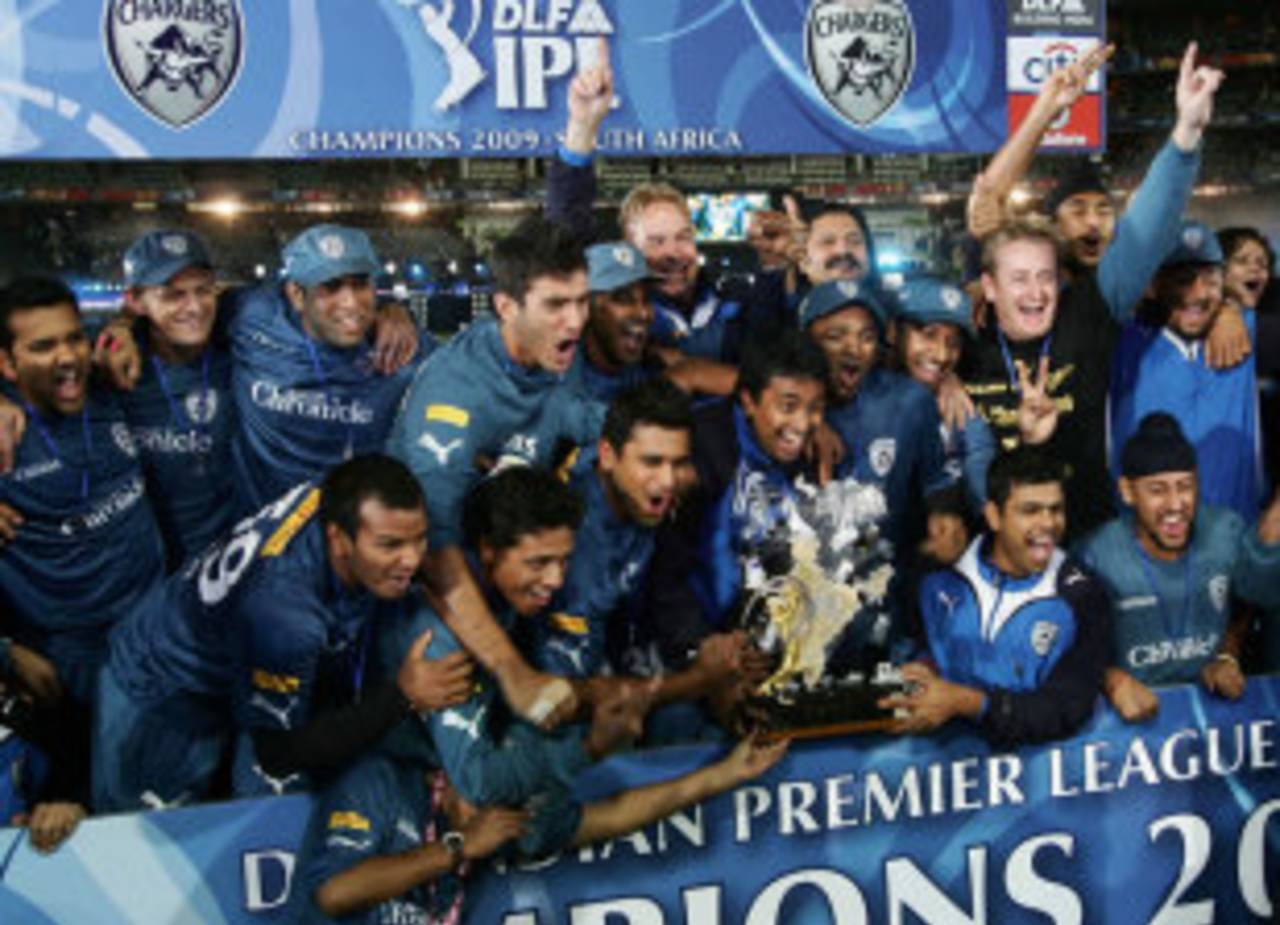'Players may opt for Twenty20 leagues' - May
FICA chief May says ICC needs to strike a healthy balance if international cricket is to retain its attraction for players
Ajay S Shankar
May 31, 2009, 5:42 PM

Tim May: "The more Twenty20 events that are programmed in any calendar year, the easier it will be for players to turn their back on international cricket" • Associated Press
The rapid rise of Twenty20 leagues will soon force international
players to choose between their countries and private franchise-based
Twenty20 events, the Federation of International Cricketers' Associations
(FICA), has warned. Tim May, FICA's chief executive, said "more and more
players" have stated in surveys conducted by the association that they
have "less of an attachment" to international cricket with the arrival of
tournaments like the IPL.
In an interview to Cricinfo, May said the ICC and its members should rework their Future Tours Programme (FTP) - the current version lapses in 2012 - to reduce international fixtures and create windows for domestic events such as IPL, which involves international players.
"Simply, something must give or players will be faced to make a decision
between representing their country and playing in franchise-type Twenty20
events," May said. "A healthy balance of optimising commercial
revenues and player workload needs to be set by the ICC and its members in
order for international cricket to retain its attractiveness to players.
The more Twenty20 events that are programmed in any calendar year, the
easier it will be for players to turn their back on international cricket.
"The trend that we observe, through our surveys of players, is that more
and more players state that they have less an attachment to international
cricket with the emergence of competitions such as IPL. More and more
cricketers are frustrated with the clustered international calendar and
the time that is being spent away from wives, families and friends."
The international cricket calendar will soon be dominated by at least five
Twenty20 leagues involving international players - IPL, P20 in England,
Southern Premier League (SPL) involving South Africa, Australia and New Zealand, Champions League, a possible IPL Season 2 and ICC events - and they will have to be accommodated along with Tests and ODIs.
May also said the FICA was concerned about the new ICC Anti Doping Code
that has been modelled on norms specified by the World Anti Doping
Agency (WADA). He said that the new ICC code, which came into force from
January 1, has a "high, inherent risk" of catching players who aren't
"administratively inclined".

Tim May: "FICA have been staunch critics of the governance structure of the ICC for•Getty Images
"The ICC Anti Doping Policy now includes, as per a mandatory instruction
from WADA, a requirement for players named in an 'International Registered
Testing Pool' to provide whereabouts information," May said. "This
requirement requires players to inform ICC 90 days in advance (each
quarter) a location and time that they will be available each day in that
quarter for testing. If the player is not in the location at the time
specified -- the player will have a strike recorded against his name. Three
strikes and the player will have breached the code and can face a two-year
suspension from the game."
Such a system has also raised concerns of privacy among players, May said.
"Obviously, there are concerns on a privacy level and also concerns on a
practical level - the administration responsibility is extreme and the
whole system, whilst designed to catch the drug cheat, has a high inherent
risk of catching athletes that just aren't administratively inclined."
Then again, at a time when cricket's headed for "an exciting future", May
said, the ICC should also give FICA a more important role in the game's
governance, possibly in its all-powerful executive board. He said the ICC
board, which comprises senior ICC officials, and representatives of
its 10 Full Members and three associates, is "full of conflicts of
interests".
"FICA have been staunch critics of the governance structure of the ICC for
a long time," May said. "It's full of conflict of interests and doesn't
contain a healthy balance of skills to address the key areas of both sport
and commercial issues. Rarely are decisions made in the interests of the
game as a whole - they are typically made on "party lines" and what is
best for that particular directors' constituency."
Ajay Shankar is a deputy editor at Cricinfo